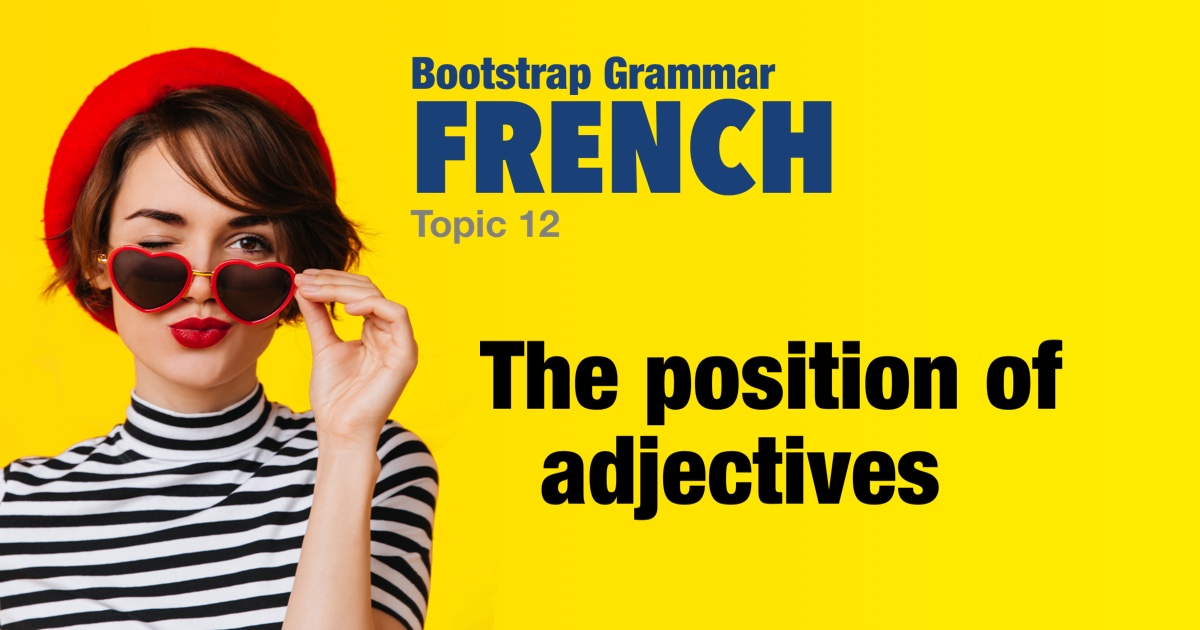French grammar - The position of adjectives |
|||
|
|||
In French adjectives that directly modify a noun ('the angry dog' rather than 'the dog is angry') mostly come after the noun - not before like in English. But there is a class of adjectives that precede the noun. Adjectives that relate to beauty, age, number, goodness and size tend to precede the noun. • Beauty includes adjectives like beau ('handsome' or 'beautiful') and joli ('pretty'). • Age includes jaune ('young') and vieux ('old') and nouveau ('new''). • Number includes autre ('other'), chaque ('each' or 'every') and dernier ('last'). • Goodness includes bon ('good'), gentil ('kind'), mauvais ('bad') and meilleur ('better'). • Size includes grand ('large'), petit ('small'), court ('short'), long ('long'), gros ('fat' or 'big'), haut ('high'). This group includes many adjectives that have irregular feminine and plural forms. |
| Examples: | |
|
Le beau jardin privé
The beautiful private garden
|
|
|
La belle femme exotique
The beautiful exotic woman
|
|
|
La jolie fleur rouge
The pretty red flower
|
|
|
La jeune fille blonde
The blonde girl
|
|
|
Le jeune homme brun
The young brunette man
|
|
|
Le vieux monsieur fatigué
The old tired gentleman
|
|
|
La vieille dame fatiguée
The old tired lady
|
|
|
La nouvelle voiture blanche
The new white car
|
|
|
Le nouveau voisin anglais
The new English neighbor
|
|
|
L'autre chose étrange
The other strange thing
|
|
|
Chaque jour chaud et chaque nuit chaude
Every hot day and every hot night
|
|
|
La première fois
The first time
|
|
|
Le dernier étage
The last floor
|
|
|
Le petit jeu amusant
The short fun game
|
|
|
Le gentil prof américain
The nice American teacher
|
|
|
Le mauvais film allemand
The bad German film
|
|
|
Le petit problème courant
The little common problem
|
|
|
Le grand homme poilu
The big hairy man
|
|
|
Le gros chat roux
The big ginger cat
|
|
|
La grosse poule grise
The big grey hen
|
|
|
La longue rue droite
The long straight street
|
|
|
Le grand bâtiment étroit
The tall narrow building
|
|
 |
|




